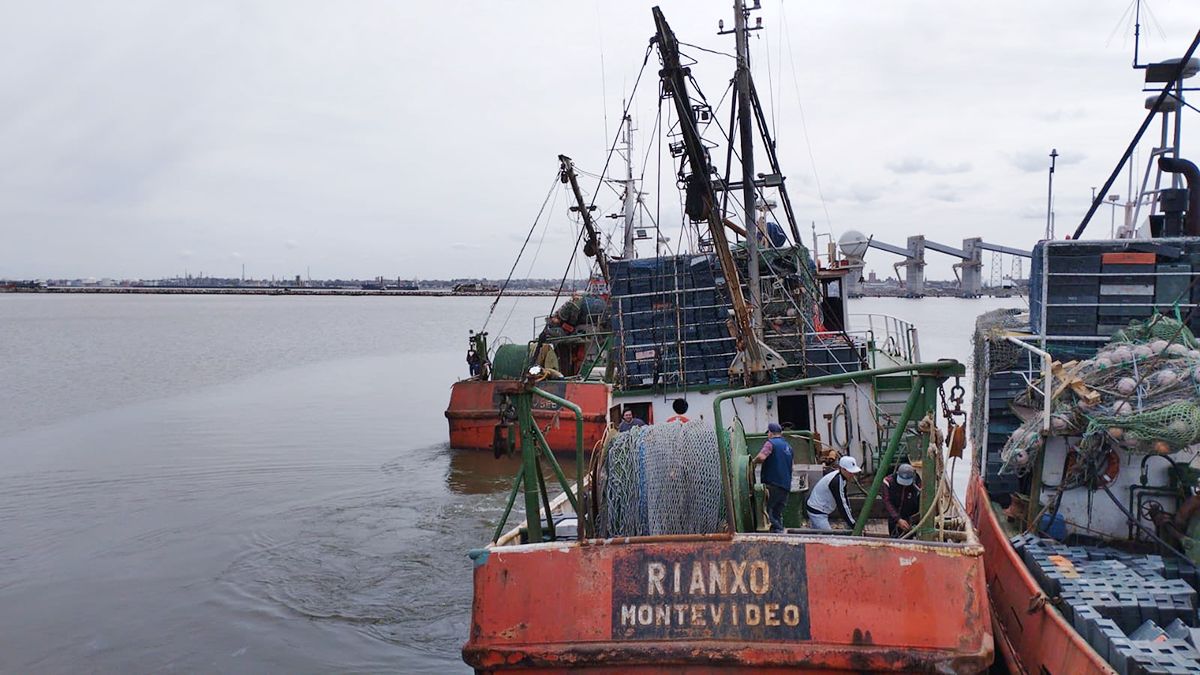The Chamber of Fisheries Industries of Uruguay (CIPU) and the Chamber of Fishing Shipowners of Uruguay (CAPU) They issued a joint statement and accused the government of being “irresponsible” for not addressing the complaints of the sector that, according to the fishing companies, is going through a borderline critical situation. “Not taking action or continuing to delay it is also a decision, with consequences that the Executive Branch will have to assume,” they warned.
He Uruguayan fishing sector is in the middle of a situation that is, in principle, complex. On the one hand, the business chambers linked to fishing have been denouncing for months the unviability of the activity outside the harvest due to the high costs; while workers warn of the “delicate situation” in terms of income and availability of employment, while maintaining the existence of ulterior motives on the part of companies in the sector – such as obtaining tax benefits, eliminating subsidized retirement or even , bring the activity to seasonality permanently.
In this context, CIPU and CAPU issued a statement in which they denounce “the government inaction to correct serious irregularities raised with the authorities for years”, and where they once again warn of the “unviability of the activity under current conditions”.
Embed
CIPU and CAPU denounce the government’s inaction to correct serious irregularities raised with the authorities for years, and warn of the unviability of the activity under current conditions.
— CIPU – Chamber of Fisheries Industries of Uruguay (@cipu_1983) March 21, 2024
According to business chambers, 90% of the fishing fleet has been paralyzed for three months, and there are almost 3,000 people directly affected by the current situation. “If nothing changes, they probably will not be able to work in fishing again,” they warned.
“We businessmen have continued to invest, get into debt and work at a loss, many times for the sole reason that workers do not lose their source of livelihood. The lack of responses from the government for months is totally irresponsible and, in practice, ends up condemning some companies,” they noted in the statement. As CIPU and CAPU recalled, the sector has been requesting in different instances and meetings “urgent measures to avoid the paralysis of the industrial fishing fleet and with it, the damage it causes to the entire business and social framework of the sector.”
“The Fishing Industry can and should be a source of wealth for Uruguayans“, they also pointed out, warning that production and employment could double or triple if the political system decides “once and for all whether it wants fishing in our country or not.” “Not taking actions or continuing to delay them is also a decision, with consequences that the Executive Branch will have to assume,” the statement concluded.
Changes and conflict
The business chambers related to fishing ask the government for some changes that collaborate with a lowering of costs which, according to what they denounce, make the activity unviable outside of the harvest, especially after a bad year due to, among other factors, strong Argentine competition. One of the claims is about decree 233 of 2009 by which a bonus retirement calculation for fishing workers.
There is also a demand to return to a scheme of contributions for fictitious contributions – as was done at some point – and not for the real salaries of the workers. Another point refers to the accident premiums of the Insurance Bank (BSE), which are noted as among the highest in the country. Fishing permit costs Dinara, The transformation of fines into warnings and equalizing the conditions of costs and operations in ports and docks are other issues put on the table by the CIPU and the CAPU, and to which the government would not be responding.
However, for the workers the situation is different, and they warn that the paralysis of activities – which led to the provision of special unemployment insurance by the Ministry of Labor and Social Security (MTSS)— is part of a premeditated strategy that points to the next salary negotiation, as well as the search for benefits or tax exemptions for the sector.
Source: Ambito




